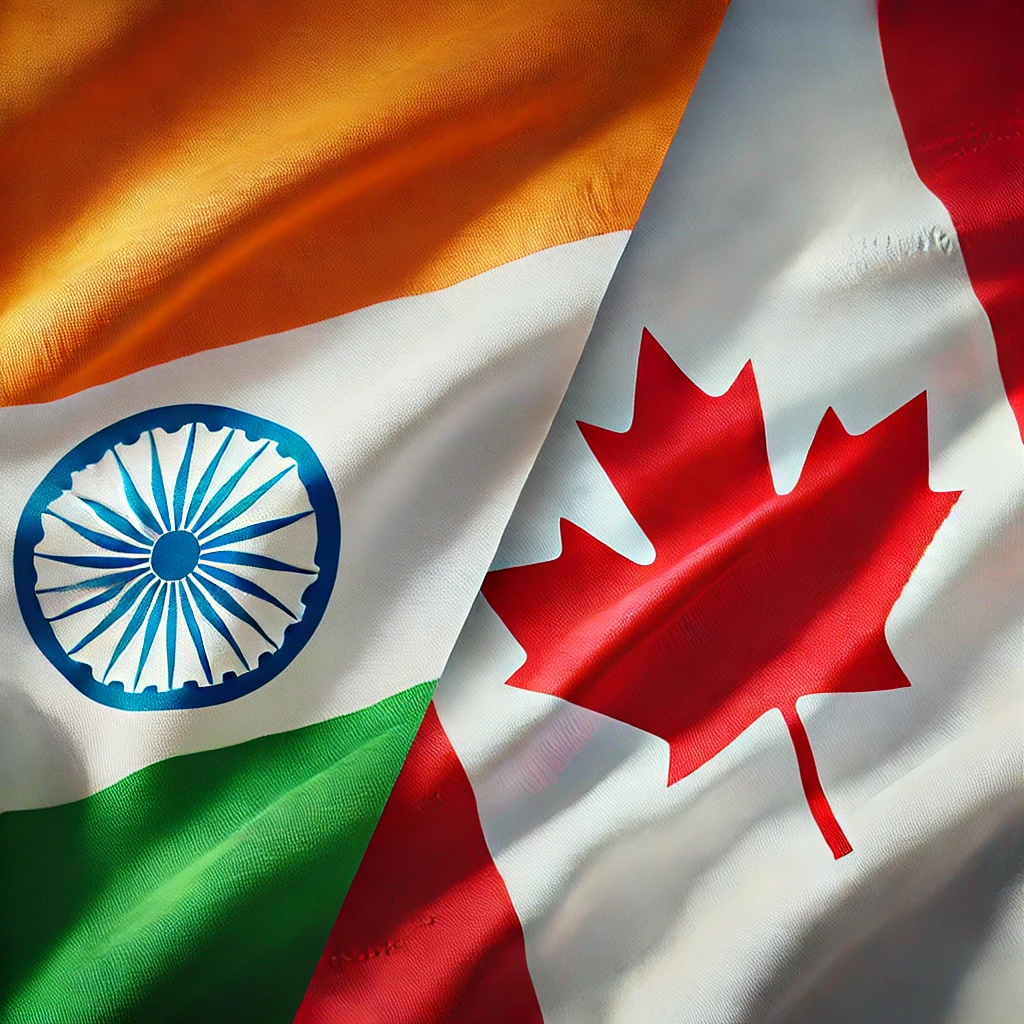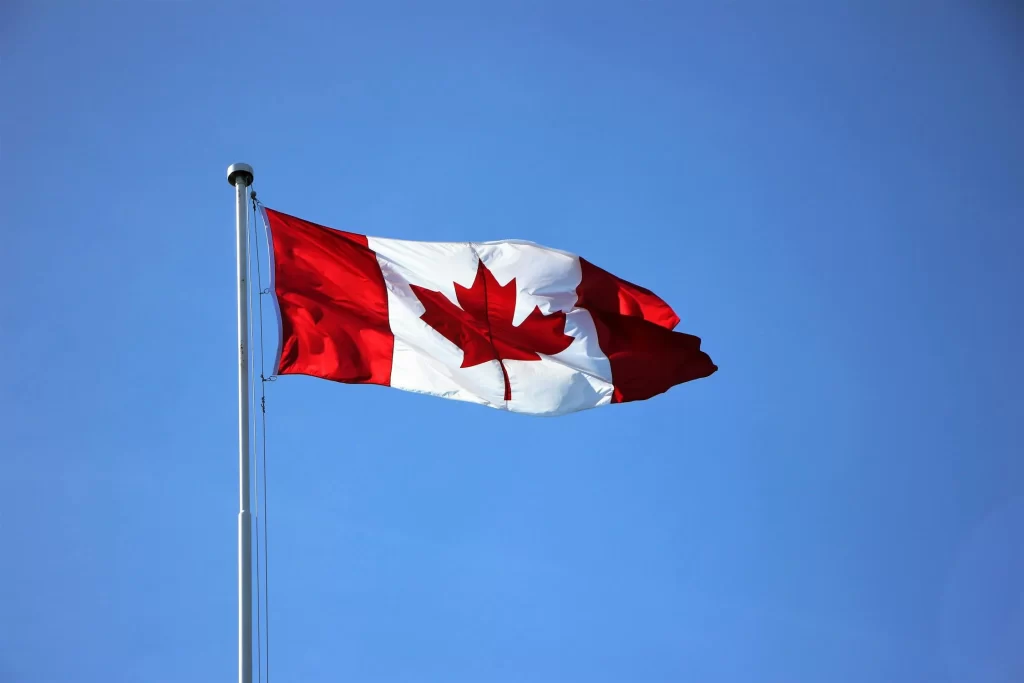India and Canada have shared a historically cordial relationship, but recent events have significantly strained diplomatic ties between the two nations bringing its relations to lowest ebb. What began as differences over domestic policies and separatist movements has now escalated into a full-blown diplomatic crisis. This news report delves deep into the causes behind the deterioration of relations, the most recent developments including the summoning of ambassadors and closure of embassies, and the actions taken by both governments. The timeline of key events over the past few years is also discussed to provide a comprehensive understanding of the situation.

2. The main cause of the deteriorating relationship between India and Canada include:
Support for Sikh Separatism in Canada: India has long accused Canada of allowing pro-Khalistan groups to operate freely within its borders. The Khalistan movement, which seeks an independent Sikh state in Punjab, is considered a major national security threat by India. Despite India’s repeated diplomatic protests, Canada has been seen as lenient toward these groups, creating friction between the two nations.
Political Interference in Domestic Affairs: Canadian Prime Minister Justin Trudeau’s vocal support for the 2020-2021 Indian farmers’ protests further strained relations. India viewed Canada’s stance as unwelcome interference in its domestic affairs. Trudeau’s remarks were particularly controversial as they were perceived to side with Indian-origin farmers in Canada, many of whom have connections to Punjab.
Trade and Immigration Disagreements: Tensions also exist in the economic sphere, particularly around trade and immigration policies. While both nations benefit from economic and educational exchanges, disputes over market access and visa regulations have exacerbated the relationship. Recent events have led to a suspension of trade talks, further impacting the already fragile economic ties.
Significant Developments
October 2023: Summoning of Canadian High Commissioner
On October 12, 2023, the External Affairs Ministry of India summoned Canada’s High Commissioner to New Delhi to convey its strong protest over the deteriorating situation. This action came just days after Canadian Prime Minister Justin Trudeau alleged that India was involved in the killing of Sikh separatist leader Hardeep Singh Nijjar. India categorically denied the accusations and demanded that Canada take stronger measures against anti-India activities occurring on Canadian soil.
Closure of Embassies
In a significant development on October 13, 2023, India decided to temporarily close its consulates in Canada, citing concerns over the safety of its diplomats. This move came after pro-Khalistan protests outside Indian diplomatic missions in Canada raised security concerns. Canada responded in kind by closing its consulates in India, deepening the diplomatic rift. These closures have had a direct impact on consular services, including visa processing and assistance for citizens residing in or traveling between the two countries.
Visa and Travel Restrictions
In the immediate aftermath of the diplomatic escalations, India also tightened visa regulations for Canadian citizens. Canadian nationals seeking Indian visas were advised to expect delays as the government increased scrutiny over applications. Meanwhile, the Government of India issued a travel advisory on October 14, 2023, warning its citizens to exercise extreme caution when traveling to Canada, citing growing “anti-India activities” and potential threats to their safety.
These actions marked a serious escalation in the dispute, signalling that both nations were preparing for a long and complicated standoff.
Government of India’s Reactions:
The Government of India has responded to the deteriorating relationship with a series of assertive actions aimed at protecting its national security interests and diplomatic standing:
- Engagement with International Allies: India has sought the support of its international allies, particularly the United States and the United Kingdom, to apply diplomatic pressure on Canada. External Affairs Minister Dr. S. Jaishankar held discussions with foreign ministers from other nations, reiterating India’s concerns about Canada’s failure to act against separatist groups.
- Diplomatic Retaliation: In response to Canada’s allegations and the subsequent diplomatic expulsions, India took the unprecedented step of closing its consulates in Canada. This decision was made with the safety of Indian diplomats in mind, following the intensification of pro-Khalistan protests outside Indian missions in cities like Toronto and Vancouver. Canada followed suit by closing its missions in India, signalling a complete breakdown of formal diplomatic channels for the time being.
- Visa Restrictions and Travel Warnings: India has tightened visa regulations for Canadians, making the process more rigorous and time-consuming. The October 14 travel advisory further demonstrates India’s concerns about the security environment in Canada. These moves reflect India’s growing apprehensions about the protection of its interests abroad.
Overview :
February 2018: Trudeau’s Controversial India Visit
Prime Minister Trudeau’s visit to India in 2018 was marred by controversy, especially after it was revealed that a convicted Khalistan sympathizer had been invited to an official event in Mumbai. This marked the first public fracture in diplomatic relations between India and Canada.
December 2020 – March 2021: Farmers’ Protest and Trudeau’s Remarks
During India’s farmers’ protests, Trudeau expressed concerns about the Indian government’s handling of the situation. These comments sparked outrage in New Delhi, as Indian officials viewed them as undue interference in domestic politics. The issue caused significant tension between the two countries, though it did not escalate to the level seen in 2023.
June 2023: Killing of Hardeep Singh Nijjar
The June 2023 assassination of Hardeep Singh Nijjar, a prominent Sikh separatist leader based in Canada, became a flashpoint in India-Canada relations. Pro-Khalistan groups accused India of orchestrating the killing, a claim that India vehemently denied. However, Nijjar’s death fuelled separatist sentiments within Canada’s Sikh community and led to protests outside Indian diplomatic missions.
September 2023: Trudeau’s Allegations Against India
In September 2023, Prime Minister Trudeau publicly accused India of being involved in Nijjar’s assassination, setting off a major diplomatic crisis. India rejected the accusations as “baseless and politically motivated.” In response to the allegations, India expelled a senior Canadian diplomat, which was followed by Canada expelling an Indian diplomat from Ottawa.
October 2023: Suspension of Trade Talks
Following Trudeau’s remarks and the expulsion of diplomats, India suspended all ongoing trade negotiations with Canada. This decision, which came in early October 2023, put a halt to discussions that were expected to improve bilateral economic relations. Both nations are significant trade partners, and the suspension has had immediate consequences for businesses, particularly in the tech and education sectors.
October 12-13, 2023: Closure of Embassies
In one of the most consequential actions of the ongoing crisis, both India and Canada closed their respective embassies and consulates on October 13, 2023. This unprecedented move has left thousands of citizens, students, and businesses in limbo, as consular services have been disrupted indefinitely.
In a dramatic turn of events, India on Monday (October 14, 2024) decided to withdraw its High Commissioner Sanjay Kumar Verma and other senior diplomats stationed in Canada. Soon thereafter, India expelled six Canadian diplomats, including the chargé d’affaires Stewart Ross Wheeler.
The developments came hours after the Canadian government declared the six Indian officials as “persons of interest” for their alleged role in the June 2023 killing of pro-Khalistan figure Hardeep Singh Nijjar in British Columbia.
The deterioration of India-Canada relations is a complex issue rooted in both internal and external factors. While pro-Khalistan activism and interference in domestic policies have been longstanding irritants, recent developments have pushed diplomatic ties to a breaking point. The summoning of ambassadors and the closure of consulates signal a diplomatic standoff that could last for months or even years. Moving forward, dialogue and mutual cooperation will be critical to avoiding further escalation and ensuring the safety and well-being of citizens on both sides.





